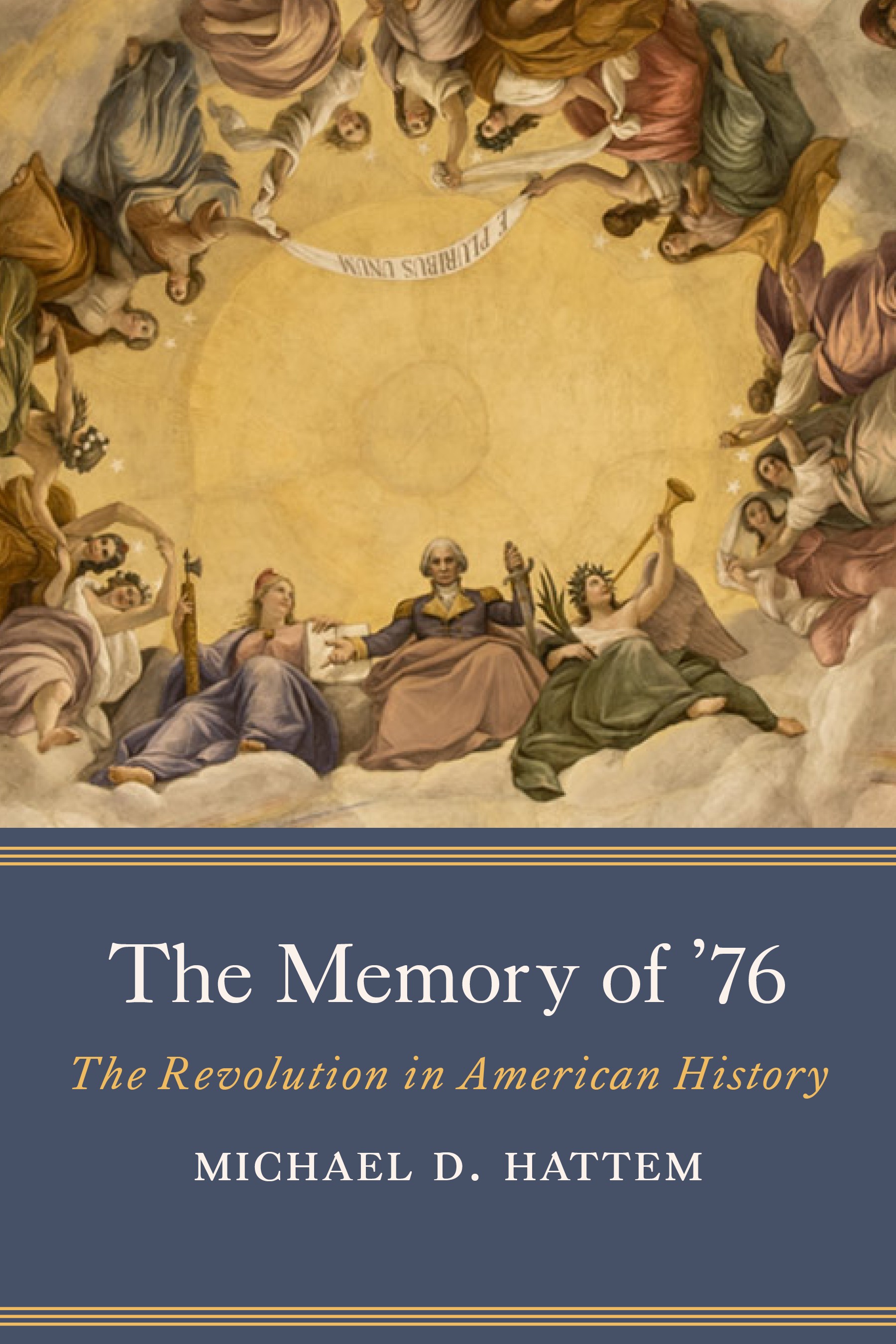David Center Lecture: "The Memory of ’76: The Revolution in American History" with Michael Hattem
Washington Crossing Historic Park Visitor Center
1112 River Road
Washington Crossing, PA 18977
Please register here to attend. [Note: this will be held in-person at Washington Crossing, and virtually on Zoom]
Thursday, October 24, 2024
7:00 - 8:00 p.m. ET

Join us for a David Center for the American Revolution Lecture from Michael Hattem, who will be discussing his new book: The Memory of ’76: The Revolution in American History (Yale University Press 2024).
This event is hosted by the David Center for the American Revolution at the American Philosophical Society. This event will take place on Thursday, October 24, 2024 at 7:00 p.m. ET at the Visitor Center in Washington Crossing and will also be livestreamed on Zoom.
The event is free to attend but registration is required. Please register here to attend in-person or online.
Can't make it? Join us instead at the APS on Wednesday, October 23 at 12:00 p.m. for Lunch at the Library! Details here.
The surprising history of how Americans have fought over the meaning and legacy of the Revolution for nearly two and a half centuries
Americans agree that their nation’s origins lie in the Revolution, but they have never agreed on what the Revolution meant. For nearly two hundred and fifty years, politicians, political parties, social movements, and a diverse array of ordinary Americans have constantly reimagined the Revolution to fit the times and suit their own agendas.
In this sweeping take on American history, Michael D. Hattem reveals how conflicts over the meaning and legacy of the Revolution—including the Declaration of Independence and the Constitution—have influenced the most important events and tumultuous periods in the nation’s history; how African Americans, women, and other oppressed groups have shaped the popular memory of the Revolution; and how much of our contemporary memory of the Revolution is a product of the Cold War.
By exploring the Revolution’s unique role in American history as a national origin myth, Hattem shows how the meaning of the Revolution has never been fixed, how remembering the nation’s founding has often done far more to divide Americans than to unite them, and how revising the past is an important and long‑standing American political tradition.
